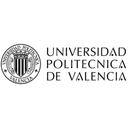This course is part of Fundamentos de Química.
Explore the fascinating world of oxidation-reduction (redox) reactions, which are among the most common chemical transformations in our environment. This course explains redox processes as electron transfers between chemical species and covers electrochemistry principles that allow us to obtain electrical energy from reactions (cells) or use electrical energy to cause redox reactions (electrolysis). You'll study galvanic cells as sources of electrical energy and explore commercially important battery types. The course also covers electrolysis fundamentals with quantitative treatment and describes various industrial applications, from product manufacturing to everyday uses like nickel-plating steel parts and pool water treatment systems. Additionally, you'll learn about corrosion—a major economic problem in industrial societies—including its causes and how to protect metal structures. The course concludes with redox reactions in biological contexts, connecting fundamental concepts to real-world applications.
(5 ratings)
Instructors:
Spanish
Español
What you'll learn
Understand oxidation-reduction reactions through practical applications
Learn how to separate redox reactions into two half-cells for battery design
Master the differences between rechargeable and non-rechargeable battery types
Compare lithium batteries and hydrogen fuel cells for electric vehicle applications
Explore electrolysis fundamentals and their industrial applications
Understand corrosion processes and protection methods for infrastructure
Skills you'll gain
This course includes:
PreRecorded video
Graded assignments, exams
Access on Desktop, Mobile, Tablet
Limited Access access
Shareable certificate
Closed caption
Get a Completion Certificate
Share your certificate with prospective employers and your professional network on LinkedIn.
Created by
Provided by

Top companies offer this course to their employees
Top companies provide this course to enhance their employees' skills, ensuring they excel in handling complex projects and drive organizational success.





There are 5 modules in this course
This comprehensive course covers essential concepts in redox chemistry and their real-world applications. Starting with the fundamental principles of oxidation-reduction reactions as electron transfers, the course explores electrochemical cells and how they generate electrical energy. Students will learn about various commercial battery types, including rechargeable and non-rechargeable options, with special attention to lithium and hydrogen fuel cells for electric vehicles. The curriculum extends to electrolysis processes and their industrial applications, from manufacturing to everyday uses like pool maintenance. A significant portion addresses corrosion—explaining both its chemical basis and prevention methods for protecting metal structures. The course concludes by examining biological redox processes, including respiration, photosynthesis, and the natural cycles of essential elements like nitrogen and carbon.
Celdas electroquímicas
Module 1
Pilas y baterías comerciales
Module 2
Electrólisis
Module 3
Los procesos rédox en tecnología y en la naturaleza
Module 4
Examen Final
Module 5
Fee Structure
Individual course purchase is not available - to enroll in this course with a certificate, you need to purchase the complete Professional Certificate Course. For enrollment and detailed fee structure, visit the following: Fundamentos de Química
Payment options
Financial Aid
Instructors

13 Courses
Profesor Titular at Universitat Politècnica de València
Juan Antonio Llorens Molina is a professor at Universitat Politècnica de València, specializing in Analytical Chemistry. He teaches chemistry in the School of Agronomy and Natural Environment.

5 Courses
Profesora del Departamento de Química
Carmen Gómez Benito is a professor in the Department of Chemistry at the Universitat Politècnica de València. She has extensive experience teaching chemistry to first-year students in various forestry and environmental degree programs. She actively participates in educational innovation projects and is a co-author of several textbooks designed for early-year university students.
Testimonials
Testimonials and success stories are a testament to the quality of this program and its impact on your career and learning journey. Be the first to help others make an informed decision by sharing your review of the course.
Frequently asked questions
Below are some of the most commonly asked questions about this course. We aim to provide clear and concise answers to help you better understand the course content, structure, and any other relevant information. If you have any additional questions or if your question is not listed here, please don't hesitate to reach out to our support team for further assistance.



